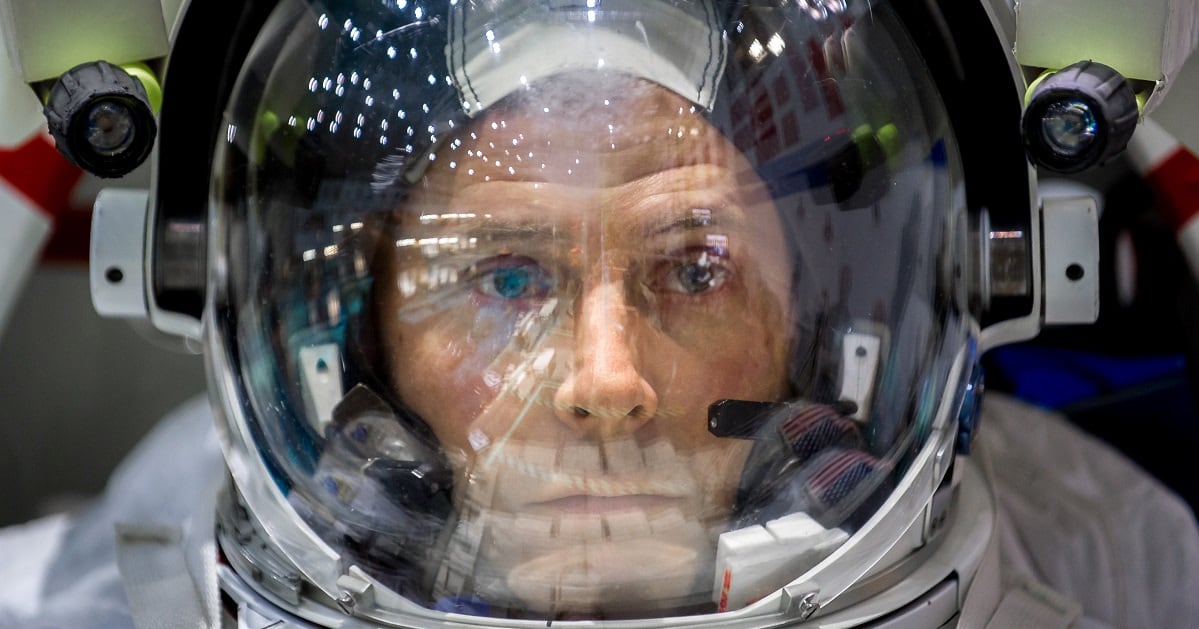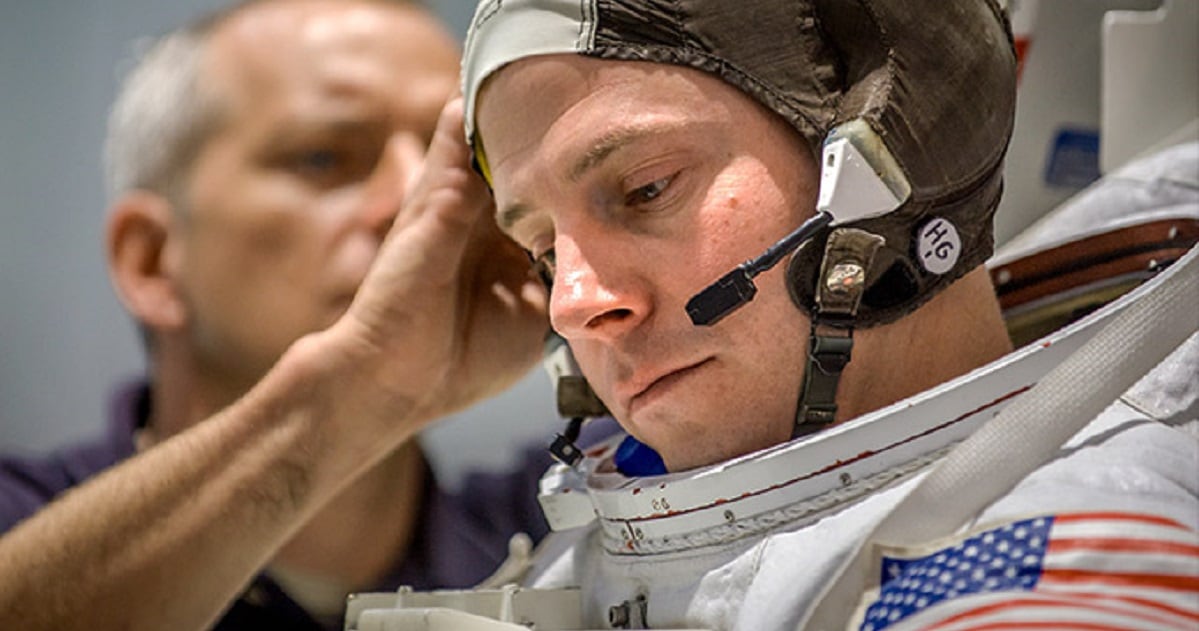NASA astronaut and Air Force Col. Nick Hague, who was forced to abort his recent mission to the International Space Station, is scheduled to launch again Feb. 28 from the Baikonour Cosmodrome in Kazakhstan.
Hague will launch with Alexey Ovchinin of the Russian space agency Roscosmos, who was his commander and crewmate on the aborted mission in October, and NASA astronaut Christina Hammock Koch aboard the Russian Soyuz MS-12 spacecraft. The trio will join the station's Expedition 59 crew and return to Earth in October 2019 as members of Expedition 60. Hague and Koch will serve as flight engineers for Expeditions 59 and 60. Ovchinin will serve as a flight engineer on Expedition 59 and the commander of Expedition 60.
During their mission, the station crew will take part in about 250 research investigations and technology demonstrations not possible on Earth to advance scientific knowledge of Earth, space, physical and biological sciences. The crew also is scheduled to be onboard during the first test flights of NASA’s Commercial Crew Program, which will return human spaceflight launches to U.S. soil.
This will be Koch's first spaceflight. Hague and Ovchinin were scheduled to join the station's Expedition 57 crew on Oct. 11, but were forced to abort their mission when their Soyuz's rocket booster experienced a malfunction shortly after launch. Flight dynamics specialists determined Hague and Ovchinin achieved enough altitude on their aborted climb to orbit to qualify for previous spaceflight status, making this Hague's second spaceflight and Ovchinin's third.

Prior to his selection as an astronaut in 2013, Hague, a native of Hoxie, Kansas, was part of the Air Force Fellows Program in Washington, where he worked as an adviser to the U.S. Senate on matters of national defense and foreign policy. He earned a bachelor’s degree in astronautical engineering from the U.S. Air Force Academy and a master’s degree in aeronautical and astronautical engineering from the Massachusetts Institute of Technology.
Koch, who grew up in Jacksonville, North Carolina, earned bachelor’s degrees in electrical engineering and physics and a master’s degree in electrical engineering from North Carolina State University in Raleigh. Her career includes experience as an electrical engineer focusing on space science instrument design at NASA’s Goddard Space Flight Center in Greenbelt, Maryland, and the Johns Hopkins University’s Applied Physics Lab, in Laurel, Maryland.
She also worked as a research associate with the United States Antarctic Program, completing several deployments, including spending the winter at the South Pole. Her work at remote scientific research stations went on to include sessions as a field engineer in the Arctic and as station chief with the National Oceanic and Atmospheric Administration in American Samoa. She was selected by NASA as an astronaut in 2013.




